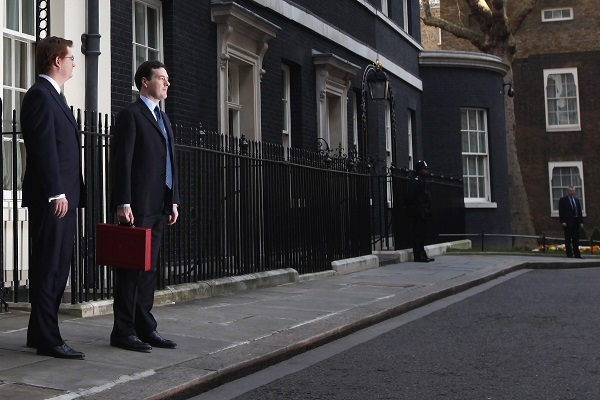What are the Ashes? This question was put to former England cricket captain Ted Dexter, the guest of honour at the launch last night of the writer and broadcaster Simon Hughes’s latest book. Dexter replied that the Ashes is an idea; the terms of engagement that had united two sporting nations in rivalry for nearly 150 years.
Few things in life are more durable than a simple idea. The idea of ‘austerity’ drives our political debate and yesterday’s spending review has extended the life of the idea deep into the next parliament. It is a political concept rather than a purely economic issue. It used to allow the government and Labour to define themselves broadly in the imagination of a largely apathetic public; but the dynamic is changing as the recovery continues to be slow and debt mounts. It remains to be seen how Labour will shape a responsible economic policy; but the government is plainly determined to lay traps for Labour to revert to type. If Labour reverts even once, then the government will say that Miliband et al can’t be trusted with the public finances — and repeat ad nauseam.
The emphasis of the fiscal debate is overwhelmingly political because the government has little fiscal record of which to speak and Labour has an indefensible record – not that Ed Balls often shies for trying to defend it. Yet things might have been different. The government’s broad economic strategy has been designed, it seems, with the aim of winning the next election through being cautious (see this James Forsyth political column from October 2010 for early signs of this grand political manoeuvre). David Cameron’s government is frequently (and justly) criticised for lacking political edge; but, where the public finances are concerned, it might have shown more interest in governing than politicking. The leading column in the latest issue of the Spectator (out this morning, subscribe here from £1 an issue if you don’t already) develops this point.
‘The Chancellor’s guiding principle — politics first, economics second — has not served him well. Politically, he could get away with extra borrowing. No one would point it out: Labour was busy accusing him of ‘deep, harsh’ cuts even when spending was rising. The political debate has become detached from the economic reality. In a scripted political broadcast earlier this year, the Prime Minister claimed to be ‘paying down Britain’s debts’ when his government is, in fact, ramping up these debts by £3,000 every second. It’s strange he should seem unaware of the fact: servicing debt will soon cost more than education, policing or defence.’
The gap between political debate and economic reality has been widened still further by some of this morning’s press coverage. Three separate front pages claim that George Osborne has taken a stand against welfare Britain. While it is true that the chancellor has tightened JSA and other benefits, he has also protected (politically active) pensioners with an unaffordable triple-lock guarantee; so it’s a bit rich of Osborne to brand Labour ‘the welfare party’ for its refusal to support this or that benefit cut.
Welfare was front and centre of the stage in yesterday’s play; but the actors skipped awkward bits of the script. Some members of the audience will like abridgment; many others will feel short-changed. Few punters, though, will deny that the theatre is dilapidated, despite all the expense lavished on it. ‘Austerity’ is real in that some communities and people have been hit by the decisions taken since 2010; but nothing can alter these plain facts: the fiscal position remains parlous and Britain is at the mercy of capricious bonds markets. As Ross Clark argued in last week’s Spectator, the government has ducked many of the ‘tough decisions’ it routinely claims to have made. I once overheard a Tory grandee describe George Osborne as ‘a chancer’. Maybe that’s going too far; but at the very least, Osborne is an illusionist and the two Eds have been his willing assistants.





Comments